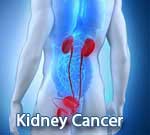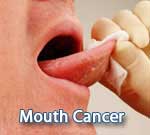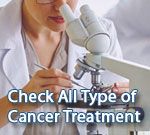Oral Cancer
Followup Care:
Nutrition
Eating well during cancer treatment means getting enough calories and protein to prevent weight loss, regain strength, and rebuild healthy tissues. But eating well may be difficult after treatment for oral cancer. Some people with cancer find it hard to eat because they lose their appetite. They may not feel like eating because they are uncomfortable or tired. A dry or sore mouth or changes in smell and taste also may make eating difficult.
If your mouth is dry, you may find that soft foods moistened with sauces or gravies are easier to eat. Thick soups, puddings, and milkshakes often are easier to swallow. Nurses and dietitians can help you choose the right foods.
After surgery or radiation therapy for oral cancer, some people need a feeding tube. A feeding tube is a flexible plastic tube that is passed into the stomach through an incision in the abdomen. In almost all cases, the tube is temporary. Most people gradually return to a regular diet.
To protect your mouth during cancer treatment, it helps to avoid:
- Sharp, crunchy foods like taco chips
- Foods that are hot, spicy, or high in acid like citrus fruits and juices
- Sugary foods that can cause cavities
- Alcoholic drinks
Rehabilitation
The health care team will help you return to normal activities as soon as possible. The goals of rehabilitation depend on the extent of the disease and type of treatment. Rehabilitation may include being fitted with a dental prosthesis (an artificial dental device) and having dental implants. It also may involve speech therapy, dietary counseling, or other services.
Sometimes surgery to rebuild the bones or tissues of the mouth is not possible. A dentist with special training (a prosthodontist) may be able to make you a prosthesis to help you eat and talk normally. You may need special training to learn to use it.
If oral cancer or its treatment leads to problems with talking, speech therapy will generally begin as soon as possible. A speech therapist may see you in the hospital to plan therapy and teach speech exercises. Often speech therapy continues after you return home.
Follow-up care after treatment for oral cancer is important. Even when the cancer seems to have been completely removed or destroyed, the disease sometimes returns because undetected cancer cells remained in the body after treatment. The doctor monitors your recovery and checks for recurrence of cancer. Checkups help ensure that any changes in your health are noted. Your doctor will probably encourage you to inspect your mouth regularly and continue to have exams when you visit your dentist. It is important to report any changes in your mouth right away.
Checkups include exams of the mouth, throat, and neck. From time to time, your doctor may do a complete physical exam, order blood tests, and take x-rays.
People who have had oral cancer have a chance of developing a new cancer in the mouth, throat, or other areas of the head and neck. This is especially true for those who use tobacco or who drink alcohol heavily. Doctors strongly urge their patients to stop using tobacco and drinking to cut down the risk of a new cancer and other health problems.





































